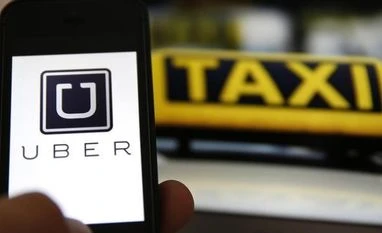A driver for Uber is an employee, not a contractor, according to a California ruling that eventually could push up costs for the smartphone-based ride hailing service and hurt the closely watched start-up's valuation.
The California Labor Commission's decision could ripple through the burgeoning industry of providing services via smartphones, with potential implications for other "crowdsourced" services such as Uber rival Lyft, chore service TaskRabbit, and cleaning service Homejoy.
The ruling - which Uber insisted applied to only one driver - was the latest in a series of legal and regulatory challenges facing the company and other highly valued start-ups in the United States and other countries.
That in turn could affect its valuation, currently above $40 billion, and the valuation of other companies that rely on large networks of individuals to provide rides, clean houses and other services.
Because it is appealing, Uber will not have to change the way it does business, for now.
Uber said in a statement that officials in five other states have found that its drivers are independent contractors.
And in 2012, the same California commission found that another Uber driver was an independent contractor, citing evidence such as the ability of the driver to determine his own hours.
The California Labor Commission's decision could ripple through the burgeoning industry of providing services via smartphones, with potential implications for other "crowdsourced" services such as Uber rival Lyft, chore service TaskRabbit, and cleaning service Homejoy.
The ruling - which Uber insisted applied to only one driver - was the latest in a series of legal and regulatory challenges facing the company and other highly valued start-ups in the United States and other countries.
Also Read
The June 3 ruling, which applies only in California, came to light on Tuesday after Uber appealed it in a filing in state court in San Francisco, where both the company and the driver in the case are based. Classifying Uber drivers as employees could mean considerably higher costs for the company, including Social Security, workers' compensation and unemployment insurance.
That in turn could affect its valuation, currently above $40 billion, and the valuation of other companies that rely on large networks of individuals to provide rides, clean houses and other services.
Because it is appealing, Uber will not have to change the way it does business, for now.
Uber said in a statement that officials in five other states have found that its drivers are independent contractors.
And in 2012, the same California commission found that another Uber driver was an independent contractor, citing evidence such as the ability of the driver to determine his own hours.




)